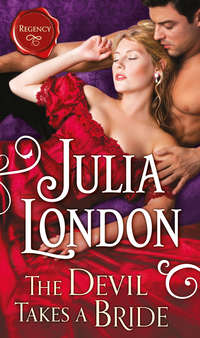
Полная версия
The Princess Plan
Eliza shook her head. “If she did, I wasn’t listening.” At Caroline’s withering look, she said, “I have quite a lot to do every day and I can’t listen to every word my sister utters, for you may trust there are loads of words. Where is Hollis, by the bye? And are you going to tell me who Lady Katherine Maugham is?”
“She is the one everyone believed would catch the eye of the crown prince. Her father is particularly well positioned in the Lords and heir to a vast fortune. His ironworks company is one of the largest in all of England and this trade agreement would be a boon for him. I’m truly surprised Lady Katherine didn’t tell you herself, for everyone knows she is certain to whisper it to whomever is nearby at the first available opportunity.”
“Well, she didn’t catch his eye in the introduction line. He walked on before she ever opened her mouth.”
Caroline gasped. And then grinned. “Really. Tell me everything, especially how offended she was.”
Eliza giggled. When they reached the ballroom, Caroline made Eliza stand to one side. “Don’t move as much as an inch, will you promise?”
“I promise,” Eliza said, and saluted her friend.
Caroline hurried off. As Eliza waited patiently—she was too full to do more than that—she became aware of a group of gentlemen very nearby. Alucians and Englishmen, she confirmed with a quick peek, and once again, she noticed the thin, wiry companion of the prince. He seemed particularly agitated now. Eliza sidled closer under the pretense of stepping out of the way of foot traffic as a dancing set came to a close.
“How dare they utter the word rebellion,” one of the Alucians muttered, his words heavily accented. “Do they not understand that every whisper feeds the potential?”
“I think they do not understand your country,” said one of the Englishmen. “They believe what they’ve been told by those who would do you harm.”
That voice sounded familiar. Or did they all sound familiar to her?
“Then perhaps they should not have been invited,” the Alucian snapped. “Surely you must know that he is—” He very abruptly stopped talking and turned around.
Eliza blinked with surprise. She hadn’t realized she’d gotten so close. “I beg your pardon,” she said, and turned away, hurrying toward the ballroom door before any of them could speak.
“Eliza!”
In her horror at having been caught eavesdropping, she’d forgotten Caroline’s instruction. She whipped about to see Caroline walking toward her on the arm of a gentleman.
“Where are you off to?” Caroline said, and through her mask, Eliza could see her glare.
“Um...” She looked toward the door.
“I should like to introduce you to my friend, if I may?” Caroline was staring daggers, so Eliza straightened, smiled and curtsied to the gentleman. Should she have curtsied? Oh well. Caroline would be sure and critique her performance later.
Caroline’s friend was no taller than Eliza. His mask rode up his nose, but he had a pleasant smile and he bowed.
“May I introduce Mr. Howard of Brighton?” Caroline said with proper aplomb. “Mr. Howard, please meet my dear friend, Miss Eliza Tricklebank.”
“How do you do, Miss Tricklebank.” He bowed. “May I be so bold as to request the pleasure of this dance? Lady Caroline informs me that your dance card is not yet full.”
Eliza shot a look at Caroline, whose countenance had gone from impatience to smiles. “You’d like that, wouldn’t you, Eliza?”
“They will be starting a quadrille,” Mr. Howard said, glancing toward the dance floor.
“Thank you, Mr. Howard. I would like that very much,” Eliza said, offering her hand to be placed on his arm. Which might have been poorly done. She couldn’t keep all the rules in her head.
“You must enter his name,” Caroline said, pointing at her dance card.
Eliza thrust her arm forward. “Perhaps you might do the honor for me, Caroline. I would so very much hate to make a mistake.” If Caroline noticed her sarcasm, she gave no hint of it. She quickly wrote Mr. Howard’s name. “There you are, off you go!” She smiled brightly, as if sending a child off to the schoolroom.
So Eliza trotted off to dance with Mr. Howard. After him, she danced with another gentleman, a friend of Mr. Howard’s. And then, the dreaded Alucian set with an Alucian whose English was so heavily accented that she could hardly understand him as she concentrated on the intricate steps. She danced a quadrille—Caroline was right, she performed passably at the quadrille. And finally, a waltz with a gentleman who reeked of tobacco and liquor.
At this point in the evening, the masks had begun to come off, as people were perspiring behind them. The cacophony of voices grew louder and the punch ran low. Eliza doffed her mask, too, tying the ribbons together and looping it over her arm while she danced. Once or twice, she had to remind herself that she was in Kensington Palace at a royal masquerade ball. That the gentlemen with whom she danced were important and wealthy men. And the women around her who weren’t already in desirable marriages were bound for them.
She might have smiled and flirted, might have pretended for the evening that she was not a spinster who looked after her father. But strangely, she had no desire to pretend. She was quite at ease as a dancing spinster fallen gaily into her cups.
And really, the only eyes she could recall at all in that vast sea of masks were a pair of autumn green eyes.
CHAPTER FIVE
At half past two in the morning, the buffet in the banquet room was replenished to the great appreciation of many after the rigor of the Alucian sets. Masks began to come off and revealed several surprises, including how the curious tastes of a northern lord extends to his costumes. There was not a single sighting of a particular royal visitor after one o’clock. Nor was there any hint of the whereabouts of a lady whose hair marked her identity where her mask attempted to hide it. There was no witching hour for revellers, as many of them were heard in the streets as they departed Kensington well past four o’clock.
Ladies, if a late night of dancing has left you with swollen eyes, the French practice of sleeping in a mask of raw veal is the perfect remedy. You’ll awake fresh and doe-eyed.
—Honeycutt’s Gazette of Fashion and Domesticity for Ladies
SEBASTIAN WOKE TO an empty bed.
He bolted upright, momentarily disoriented by the small room and the absence of any servant quietly arranging the tea service. But it quickly came rushing back to him—the woman with the brilliant red hair riding him, her fingers curling into the flesh of his chest. He looked down. Je, she’d left a mark.
Sebastian rubbed his hands through his hair, then got out of bed and found his clothes, everything but his discarded mask. He quit the room in a half-dressed state. His shirttails were out, his coat draped over his arm, his neckcloth dangling from his fingers.
Two guards were stationed just outside the door, both of them leaning against the wall, having learned the art of sleeping while standing up, a skill Sebastian himself did not possess. They quickly roused and silently led Sebastian out of the building, taking care to make sure the doors closed soundlessly behind them.
The day was just beginning to dawn when they reached a familiar part of the palace. When Sebastian entered his chambers, his valet, Egius, very nearly fell out of the chair where he’d been sleeping. Sebastian handed his coat and neckcloth to him. “A bath, please.”
“Je, Your Highness.” Egius bowed and went out to arrange it.
Sebastian walked to the basin, plunged his hands into ice-cold water and splashed his face. His belly rumbled with hunger. It had been a vigorous night—Mrs. Forsythe had a voracious appetite for the male body.
His butler entered the room and bowed, “Bon den, mae principae.”
“Good morning, Patro,” Sebastian returned in Alucian. “I’ll breakfast after my bath. Bring round the foreign minister. Where is Matous?”
“I’ll send a man to rouse him, sir,” Patro said.
It was early yet, Sebastian realized with a yawn. Too early to wake a man. “Leave him for now,” he said, with a wave of his hand. “Let the man sleep until breakfast.”
When Sebastian’s bath was readied in the adjoining room, he sank into the steaming water and closed his eyes. This was the first time since arriving in England that he felt so relaxed. He was grateful to Mrs. Forsythe for scratching an itch that badly needed tending.
He dozed lightly in the fragrant water as his mind wandered aimlessly through a forest of thoughts, including the dozens of women he’d been introduced to since arriving in London. There were always women—eager, hopeful women. His lack of interest in any one in particular concerned his country’s ministers. It wasn’t that he didn’t care for women—nothing could be further from the truth. But it seemed to him, more often than not, that a woman’s interest in him was more about a position of privilege and notoriety than it was about him.
Nevertheless, he understood that he had to marry. He had to produce heirs. He was two-and-thirty, well past the time to do the one thing required for his life of undeniable privilege and produce an heir.
He’d met scores of women in Alucia. He’d met scores of women tonight at the ball, and before that, at supper parties across Mayfair in the homes of notable Englishmen. And two days after his arrival, at the formal supper at Windsor—but there, he’d been captivated by the saucy Mrs. Forsythe. No one else had stood out to him.
It was the same wherever he went, in any country, on any continent. He was introduced to people who were eager to marry a daughter, niece, sister, granddaughter to him. There were so many young women, in fact, that they’d all begun to look alike. Pale English faces and narrow noses. Mrs. Forsythe had stood out for all the wrong reasons. Compatibility, affection—none of that seemed to matter other than that the woman would one day be a queen and the mother of the heir to the throne in Alucia, and thereby bring the family privilege and standing. Sebastian could be a beast and it wouldn’t matter.
He sank lower into the tub and thought about calling for more hot water. Unfortunately, he had meetings to attend. Today, he was meeting with the English trade minister, who was clearly skeptical of the proposed agreement. Sebastian had to be at his best and convince the man.
And yet, he didn’t move from the warmth of the water.
The problem with all these women, he mused, was that he looked at the task of finding a potential mate as another in a long line of tasks: meet with the English officials about the trade arrangements; form alliances with rich, important men; select a woman from the many presented to marry. It seemed an easy enough task to accomplish if a man could divorce his feelings from it, but there was a part of him that yearned to find one who was compatible with him in some way. One whom he could trust. One who could be a friend and lover before she was ever a queen. Was that possible? Probably not. His grandmother had once said to him that there were trades in everything a person encountered in life. Great wealth and responsibility must come at the expense of something else. He assumed she’d meant love.
Once, he’d said to Leopold that he desired a woman who was compatible, and his brother had laughed. Not at Sebastian, really, but at the absurdity of their lives. They both knew that it was nearly impossible to find people they could completely trust, and they could only hope for it. Wealth and influence and titles had a way of turning otherwise honest people into liars and actors. Not that Sebastian believed that every woman he met was untrustworthy—but he didn’t know how to separate the trustworthy ones from the opportunists.
He would probably never know if the woman he married held any particular esteem for him. She could be bored beyond hope by his quiet life, and he’d not know it. Honestly, Sebastian didn’t know if there was really anything for a woman to admire about him other than the fact that he would one day be king.
The water had cooled, and he grudgingly climbed out of the tub. He accepted a towel and thick wool robe from Egius. He stood in front of the fire and ran his fingers carelessly through his damp hair. When he felt warm and dry, he went into the sitting room, waving off the undershirt Egius tried to hand him. “I’ll have my breakfast first,” Sebastian said.
He took a seat at the dining table. A young Alucian servant poured coffee. Patro had put a neat stack of his briefing papers on the table. He would be presenting language for the agreement later today. He picked up the first one and scanned the writing...power and strength, and to take use of all due means, courses and prescriptions, and execute due acquittance and discharge...
There was a soft rap at the door, followed by Patro’s entrance. He bowed low. “Your Royal Highness, Field Marshal Rostafan and Foreign Minister Anastasan.”
The two men entered behind Patro, both of them looking a little bleary-eyed. “Gentlemen,” Sebastian greeted them in Alucian. “Did you enjoy the evening, then?”
“Excessively,” Rostafan said, and sat heavily at the table beside Sebastian. By the look of it, Alucia’s top military officer had not combed his hair. He was a barrel-chested man, quite tall, with a ruddy complexion and a beard that was in desperate need of trimming. He wore his military ribbons with great pride and had a habit of chewing his bottom lip to the point it looked always chapped. He took very little notice of the protocols and customs when it came to dealing with members of the royal family and tended to treat the king and his sons as if they were all equals.
His manner was the very opposite of Caius Anastasan, the foreign minister. Where Rostafan was big and gruff, Anastasan was trim and fastidious in his manner and attention to Sebastian. His olive brown skin was smooth and flawless, save for the dark circles under his eyes this morning, and he had not a hair out of place in spite of the early hour.
Sebastian knew Caius well—they’d attended Oxford at the same time, and Sebastian had considered him a friend. But his investiture as the crown prince of Alucia had changed some of his earlier relationships, including the one with Caius. His old friend had become deferential, and when he was named foreign minister, his deference had turned almost cloying. Sometimes Sebastian wondered if he’d imagined those years at Oxford.
Caius waited until Sebastian invited him to sit, which he did with a gesture of his hand.
“How did you find the ball, Your Highness?” Caius asked.
“Tolerable,” Sebastian said, then smiled slyly. “Particularly toward the end.” His visitors chuckled knowingly. Sebastian was used to every detail of his life being known to the people around the throne. It was impossible for him to have any secrets for any length of time.
Patro returned, this time with two servants carrying trays of breakfast—eggs and sausages, toast points and jam.
The three of them ate heartily while the men regaled Sebastian with tales about the ball. The sight of the English attaché dancing one of the Alucian sets was the stuff of excellent comedy when Rostafan told it. As they finished their meal, the talk gradually turned toward the meeting Sebastian was to have that afternoon. Caius was speaking about the need to reduce tariffs on Alucian goods. “We should insist on lowering the tariffs for—”
Sebastian stopped Caius from speaking by lifting his hand. “I would have Matous here for this.” He looked around for Patro.
The butler nodded and went out to fetch the private secretary.
Rostafan drummed his fingers on the table, obviously annoyed by the wait. He turned his attention to the window and craned his neck to have a look at the gardens. “Looks to be another gray, wet day,” Rostafan said. “One cannot comprehend how an entire people can abide such gray, wet conditions day in and day—”
The door suddenly burst open and Patro, wild-eyed and ashen, rushed in.
Sebastian twisted in his seat, confused. “What is it?”
“Sir—Mr. Reyno does not rouse.”
Rostafan chuckled. “He can’t hold his drink.”
But Sebastian could see by Patro’s face that he didn’t mean Matous had drunk too much. “What do you mean, he does not rouse?” Sebastian demanded as he gained his feet.
“Sir, I regret to tell you there is a great deal of blood.”
Rostafan lurched forward, brushing Patro aside as he rushed from the room. Sebastian moved to go after him, but Caius caught his arm with a surprisingly strong grip. When Sebastian tried to shrug him off, Caius put both hands on Sebastian’s chest and roughly shoved him back.
“You dare put your hands on me?” Sebastian shouted.
“Sir! We don’t know what’s happened. We don’t know if it’s an ambush or some plot to draw you out. Patro! Send in the guard!”
Sebastian again tried to follow Rostafan and pushed Caius aside, but he was stopped by the appearance of guards who blocked his exit.
“Your Highness,” Caius said, his voice gentler. “You must wait here until we know it is safe.”
Several guards filed in behind the first. Sebastian glared at them all, enraged. He didn’t care that they had a duty—he only cared that they allow him to pass, to see what had happened to Matous.
With a roar of frustration, he whipped around and swept the breakfast dishes from the table, sending them crashing to the floor.
It seemed hours before Rostafan returned. His expression was dark, and his hands were covered in blood.
“Well?” Sebastian demanded.
“Murdered,” Rostafan said. “His throat slit.”
The news was so astounding that Sebastian lost his balance. He tipped into the breakfast table, catching himself with his hand. “It’s not possible,” he said. Matous! His one true friend. He felt sick. There was a pressure on his chest that felt as if it would crush it. He was aware of everyone in the room, crowded with men now. They all stared at him, awaiting his order of what was to be done. “How is this possible?”
No one answered.
“How is this possible?” Sebastian roared, and brought his fist down on the table.
He suddenly recalled Matous intercepting him on his way to rendezvous with Mrs. Forsythe. He’d wanted to speak to Sebastian, had seemed unusually flustered when Sebastian put him off.
He’d told him he would meet him here, in his rooms, and then he’d never come. What had Matous said? What were his exact words?
“Your Highness, with your permission, I will alert the proper authorities,” Caius said. His voice sounded hollow.
Sebastian nodded numbly—he wasn’t even certain who spoke. “Leopold,” he croaked. “Find him and bring him at once.”
More people left the room. More people came in. A maid to clean up the mess he’d made. Egius to dress him. He couldn’t undertake a murder investigation in a dressing gown.
“I want to see him,” Sebastian said to no one in particular.
“I would advise against it,” said Rostafan.
“I want to see him,” Sebastian insisted. He signaled Egius to follow him into the dressing room. When he was dressed, he entered the crowded sitting room again and looked at his field marshal. Without a word, Rostafan went to the door and opened it.
Sebastian followed him, striding down the carpeted hall to a door at the end. He braced himself, then stepped inside the small bedchamber and looked toward the bed. The first thing he saw was Matous’s gloved hand hanging off the side of the bed. He’d been born with the deformity, a misshapen stump of a hand with no fingers. And while one would scarcely notice his hand, as Matous had adapted quite well, there were some things that were difficult for him. Sebastian would imagine that fighting off an attacker would be one of those things.
His belly churned, but he stepped closer. There was a massive amount of blood, and a gaping wound across Matous’s throat. But Sebastian was surprised that his friend looked so peaceful in death, his face free of the creases of worry. He looked as if he was sleeping, his dreams gentle, and below his gentle, dreaming face, an ugly, bloody gash.
Who would have done this?
Who?
The English guards had arrived, and the Alucian guards were insistent that Sebastian leave the room. He was escorted back to his sitting room, which had filled with more people. Alucians, mostly, including the foreign minister’s wife, who was quietly weeping in a corner, consoled by Rostafan. There were two Englishmen in heated conversation with Anastasan. Sebastian was surrounded, and yet, he had never felt so alone in his life.
He’d never felt such guilt, either. Matous had wanted to speak to him, but Sebastian had been ruled by his cock, too intent on relieving it with Mrs. Forsythe. He needed a moment to himself. He wanted to mourn his secretary and friend privately.
He would not be allowed that opportunity. He would be watched by everyone. Even now, as he tried to absorb the shock, a frail Englishman had inched forward. His moustache was in need of a trim, and his skin was a peculiar shade of gray. “I beg your pardon, Your Royal Highness, but if I may inquire as to the last time you saw Mr. Reyno alive?”
Sebastian felt sick, as if his breakfast would depart his body at any moment. He swallowed down the nausea. He’d been taught from the time he was a lad to put on a face to the public. “Last night, at the ball,” he said calmly and prepared himself to answer more questions.
He would do anything to find who had done this to Matous.
CHAPTER SIX
Commissioned for a dear sum from the most prestigious milliners and modistes of London, the masks worn at the Royal Masquerade Ball were a sight to behold. Some of them defied the laws of gravity in their precarious perch upon unknown faces. Some defied the laws of fine taste, and in particular a keen eye was cast upon the bird’s nest that sat upon a lady’s head as if she expected her chicks would come home to roost at any moment.
—Honeycutt’s Gazette of Fashion and Domesticity for Ladies
ELIZA, CAROLINE AND HOLLIS had returned to Caroline’s lovely Mayfair home at a quarter till five in the morning, and slept like angels until one o’clock in the afternoon. When at last they did rise, they carried themselves down to the dining room, still in their nightgowns and dressing robes and their hair unbound. They had breakfast, lazily picking over the food as they reviewed the masquerade ball in detail.
“Did you see Lady Elizabeth Keene?” Hollis asked with much excitement. She’d drawn her legs up under her nightgown and wrapped one arm around them as she nibbled toast.
“Who?” Eliza asked.
“Lady Elizabeth Keene, darling. If you’d come with me to the recital at the zoological gardens, you would have seen her.”
“I leave the gathering of gossip to you, Hollis, you know it very well. I am better use to you in putting the gazette together.”
“Well, she and Lady Katherine Maugham are fierce rivals and she’s livid she’s not yet been noticed by Prince Sebastian when everyone said she would be. She was quite attentive to a certain English gentleman for spite.”
“The bodice of Lady Elizabeth’s gown was cut so low, I should think she might have had all the attention she pleased,” Caroline said, waggling her brows as she bit off a piece from the slice of ham that she held delicately between two fingers. She had taken two chairs—one for sitting, one as an ottoman for her legs.
“But I thought Lady Katherine was livid she’d not yet been noticed by Prince Sebastian,” Eliza said, confused as to who was livid about what.
“I hardly noticed Elizabeth’s bodice at all,” Hollis said. She was studying a bit of paper she’d smoothed on the table. It contained her notes. “I could not tear my eyes away from her mask. It looked like an awful bird’s nest perched on her head.”








